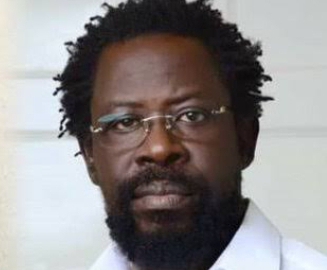Human Rights Day 2024: Atiku, Falana…top figures against Farotimi’s detention

Photo credit: Google
As the world marks Human Rights Day 2024, Nigeria finds herself embroiled in a contentious human rights battle.
The detention of prominent activist, lawyer, and author Dele Farotimi in Ekiti State has sparked national and international outrage, igniting conversations on civil liberties, judicial overreach, and the role of dissent in a democratic country.
Dele Farotimi was arrested in Lagos by the Ekiti State Police for an alleged accusation of defamation and cyberbullying by a senior citizen, Afebabalola (SAN). This is over a book published by the former entitled “Nigeria and its Criminal Justice System.”.
Among the loudest voices condemning this arrest are former Vice President Atiku Abubakar and renowned human rights lawyer Femi Falana (SAN), alongside a coalition of civil society groups, legal practitioners, and concerned citizens.
READ ALSO: Tax Reform Bill: The South Must Refuse To Be Gaslit Against the North
Monday Okpebholo: Why Edo gov shouldn’t be mocked over English – Reno Omokri
Atiku, Ohanaeze, Afenifere… critics and supporters of Tinubu’s tax reform bill
Atiku, Ohanaeze, Afenifere… critics and supporters of Tinubu’s tax reform bill
Their unified stance against Farotimi’s detention highlights deeper systemic issues in Nigeria’s governance and raises urgent questions about the country’s commitment to the principles enshrined in the Universal Declaration of Human Rights.
Atiku Abubakar, known for his eloquent articulation, has emerged as one of the most prominent figures opposing Farotimi’s detention. Speaking during a Human Rights Day forum in Abuja, Atiku called the arrest a “travesty of justice” and a blatant attack on free speech.
He also slammed against the detention in a statement released on his X account earlier today.
He said, “Dele Farotimi, a lawyer and tireless advocate for human rights, now languishes in prison custody not for any crime but for the supposed “crime” of persistently speaking truth to power.
His only offence lies in his unflinching commitment to exposing the truths that the government and its collaborators would rather remain hidden.
More troubling still is the fact that he is detained and prosecuted under the guise of a law that does not even exist in Ekiti State.”
He went further to say that Farotimi’s plight serves as a poignant reflection of the pervasive climate of impunity and the blatant violation of citizens’ rights that has become all too common in Nigeria.
Yet, perhaps the most alarming of all is the weaponisation of the cyberbullying law, which is being used as a tool to harass
s, intimidate, and silence dissenting voices in the opposition and the press.”
Femi Falana, a well-respected human rights defender, has involved himself in the case.
In a strongly worded statement, Falana accused the authorities of undermining the rule of law, citing Nigeria’s obligations under international human rights treaties. “The detention of Dele Farotimi is not just unlawful; it is immoral. It contravenes every principle of justice and humanity that this government claims to uphold,” he asserted.
Falana’s call for an independent judicial review has gained traction among civil society groups and legal practitioners, many of whom are rallying behind his efforts.
The broader civil society community has not remained silent. Organisations such as Amnesty International, the Socio-Economic Rights and Accountability Project (SERAP), and the Nigerian Bar Association (NBA) have all issued statements condemning Farotimi’s detention.
SERAP, in particular, has threatened to file a lawsuit against the Nigerian government at the Economic Community of West African States (ECOWAS) Court of Justice if Farotimi is not released immediately.
Meanwhile, protests have erupted in some places, with demonstrators carrying placards on social media demanding the freedom of Farotimi, calling for an end to state-sponsored repression.
Premium Times reports that the NBA said that it “is gravely concerned about the arrest of Dele Farotimi on allegations of libel, as well as the reported invasion of his law firm and the harassment of lawyers and staff within the premises.”
The association went further to say that the arrest is a “troubling breach of human rights and the sanctity of the legal profession.”
They further stated, “We must reiterate that the alleged offence of libel, for which Dele Farotimi was reportedly arrested, is not recognised as a criminal offence under the laws of Lagos State. The Criminal Law of Lagos State 2011 repealed the criminalisation of defamation by omitting it from its provisions. This progressive legislative move aligns with global best practices, which treat defamation as a civil wrong rather than a criminal offence.”
On a global level, the timing of Farotimi’s detention, coinciding with Human Rights Day, has amplified international scrutiny.
Several foreign embassies, including those of the United States and the European Union, have expressed concerns over Nigeria’s deteriorating human rights record. In a joint statement, they urged the Nigerian government to “respect the fundamental freedoms of its citizens and uphold the rule of law.”
Farotimi’s detention in a wider lens is more than a singular event; it is a litmus test for Nigeria’s democracy. It raises questions about the space for dissenting voices in a country that claims to adhere to democratic norms.
The outcome of this case will set a precedent for future engagements between the state and civil society. A failure to address the underlying issues could embolden further repression, while a just resolution could restore some faith in the system.
It is a stark reminder that the fight for human rights is far from over. Whether the government heeds the calls for his release or doubles down on its position will shape the narrative of Nigeria’s democracy in the years to come. For now, the world watches and waits, hoping that justice will prevail.

